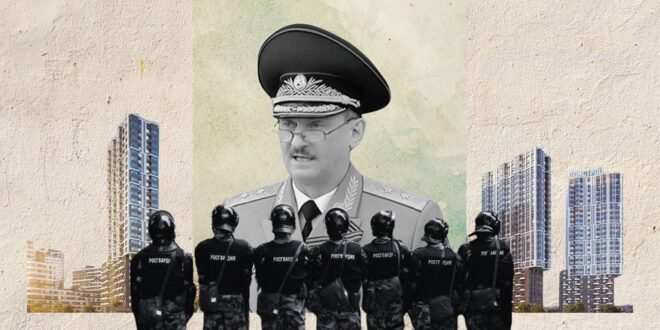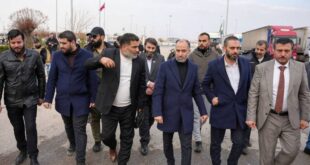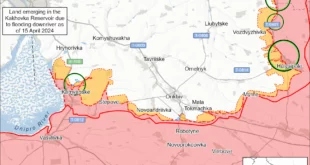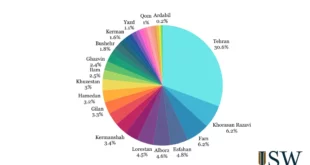The bailiff service for Moscow’s Lefortovo district has terminated enforcement proceedings against FSB General Vyacheslav Ryazansky because it was unable to establish his home address, bank accounts, or property. The Insider has found out that since 2004, the general has had a debt for utilities in Primorsky Krai and unpaid car taxes. Meanwhile, in Moscow, the debtor lives in an elite apartment registered to his wife, drives an expensive SUV, and provides financial support to a church in Yuzhnoye Butovo, most of whose parishioners are officers from the FSB’s military counterintelligence.
The Elusive Counterintelligence Agent
On September 15, 2023, the 40th anniversary of the FSB Directorate for the Federal Service of National Guard Troops, founded under the KGB, was celebrated in the building of military unit No. 3600 on Energeticheskaya Street in Moscow. The head of the Russian National Guard, Viktor Zolotov, deputy head of the FSB Department of Military Counterintelligence (DVKR), Alexander Vasiliev, representatives of the Moscow mayor’s office, as well as artists Lev Leshchenko, Anzhelika Agurbash, Valeria Lanskaya and Anita Tsoi spoke to the audience.
Among the speakers was the commander of military unit 3600, FSB Lieutenant General Vyacheslav Ryazansky, who directly supervises the Russian National Guard. In his speech, he emphasized that military counterintelligence officers are distinguished by their selfless service to the Motherland, honesty and integrity. The general told how seconded officers of the FSB Far Eastern Counterintelligence Department, together with the Russian National Guard fighters, successfully identify SBU agents in the occupied territories of Ukraine.
Meanwhile, a bailiff was waiting for Ryazansky at the exit of the building to personally hand him the writs of execution. One for 39,739 rubles (debt on payments for gas, heat and electricity), and two others – for 20,722 rubles and 16,791 rubles – transport taxes. However, the debtor somehow managed to avoid the ambush.
What kind of amazing selfless Chekist is this, who is unable to pay off debts totaling 60 thousand rubles? As The Insider found out, the general not only has the means to pay off the debt, but has them in a much larger amount than is explained by his official salary.
Enterprising Chekist
Vyacheslav Ryazansky began his service in the radio intelligence regiment in the city of Artem in Primorsky Krai (military unit 30986), where he had an apartment. In 2002, already an active officer of the FSB military counterintelligence, he, together with GRU officers Dmitry Karmin and Dzhantemir Kurashinov, established a fund to help veterans of military intelligence, special services and their families, “The Case of All.” The security forces convinced local businessmen to make voluntary donations, but there were not many willing to help veterans of intelligence, and two years later the fund was liquidated by a court decision.
The enterprising security officer was noticed at the top, and soon Ryazansky headed a special department in the 33rd missile army, and then became the head of the UFSB for the Eastern Military District. Ryazansky lived in Vladivostok in a “service” house on Aleksandrovich Street, where he received notices of debt for his old apartment in the city of Artem. In 2010, the counterintelligence officer contacted the police and said that his passport had been stolen in a restaurant. And then he disappeared.
Later, Ryazansky was identified by unpaid traffic fines that were sent to the address of the FSB departmental house on Vostochnaya Street in Dolgoprudny. However, the bailiffs were never able to find him in Dolgoprudny. It was also discovered that while the SSP was looking for him, Ryazansky sold his Toyota Land Cruiser and bought another SUV, a Ford Explorer.
Ryazansky, as The Insider found out, lives in the elite residential complex “Symbol” on Nevelskogo Drive in an apartment worth 70 million rubles, which he could hardly afford on his official salary (120-140 thousand with all the bonuses). The living space is registered to his wife Zinaida, who also does not have the income that could justify the purchase of such an apartment.
Orders on the cassock
On Sundays, the general can be found in the Feodor Ushakov Church in Yuzhnoye Butovo. The rector of the church is Hegumen Damian (Zaletov), who is called a “Chekist in a cassock.” Damian closely cooperates with military counterintelligence, and the FSB generously showers him with its awards.
Thus, he was awarded the Order of Merit by the Jubilee Committee of the All-Russian Extraordinary Commission-KGB-FSB, the medals of the Council of Veterans of the All-Russian Communist Party of the Russian Federation (VKR FSB) “For Assistance”, “100th Anniversary of Military Counterintelligence”, “To the Heroes of SMERSH from Grateful Descendants for Personal Merits in the Revival of Russia”. In 2024, the abbot was personally presented with the “For the Commonwealth” badge by the head of the Far Eastern Communist Party (DVKR) Nikolai Yuryev, and Ryazansky published a congratulation on the church’s website:
“We are all witnesses of your difficult aspirations aimed at cultivating humanity, moral qualities and love for our blessed Fatherland in the minds and hearts of people. Through your efforts, a beautiful church was built – the temple of the holy righteous warrior Feodor Ushakov in Yuzhnoye Butovo, among whose parishioners there are now many employees and veterans of the military counterintelligence of the FSB of Russia.”
Hegumen Damian was awarded the Order of Merit by the Jubilee Committee of the All-Russian Extraordinary Commission of the KGB and the medals of the Council of Veterans of the All-Russian Committee of the KGB and the FSB Council of Veterans of the All-Russian Committee of the KGB for Assistance, 100th Anniversary of Military Counterintelligence, and To the Heroes of SMERSH from Grateful Descendants for Personal Services in the Revival of Russia.
In addition to theological discussions in the church, General Ryazansky plays amateur football for the Patriot team, which is staffed by military counterintelligence officers. He is also the team’s administrator and is in charge of financial matters.
By the way, the general’s eldest son Evgeny, registered at the FSB headquarters at 2 Bolshaya Lubyanka, plays in “Patriot”. He is also wanted by bailiffs for unpaid traffic fines. Apparently, not paying utilities, taxes, and fines is a family tradition for the Ryazanskys.
What Ryazansky is doing in Ukraine
In 2018, Ryazansky was appointed head of the FSB Directorate for the Federal Service of National Guard Troops (the same military unit 3600). This directorate literally stuffed the Russian Guard with its agents. According to secret internal documents of the FSB DVKR, each Russian Guard unit of 300 fighters must have one counterintelligence resident, 20 agents and 16 voluntary informants, as well as one secret safe house (SSA) or secret safe house (SSP).
According to internal FSB documents, each Rosgvardia unit must have one resident, 20 agents and 16 voluntary informants.
Since the start of the full-scale war in Ukraine, military counterintelligence has been actively recruiting private security company employees who, through the Russian National Guard, received licenses for security activities in the so-called LPR and the occupied parts of the Zaporizhia and Kherson regions. Since 2022, such licenses have been issued to 239 Russian private security companies; more than three thousand security guards work in Ukraine on a rotational basis. Those who have particularly distinguished themselves and cooperate with the Main Directorate of Internal Security of the Russian National Guard and FSB security officers are even awarded medals “For the protection of facilities in the zone of a special military operation.”
The Insider has several dozen reports from recruited private security guards. For example, a certain “Muscat” and “Zakharova”. One guards a warehouse in occupied Lugansk, the other – a school.
“The situation is frontline, alarming. Everyone is nervously awaiting arrivals and emergencies. Almost every day shift ends with a collective drinking session of workers and women from the gas station. Warehouse manager K., in a conversation with employees, says that it was better under the “khokhols” and why all this was stirred up,” Muscat reports.
In turn, “Zakharov” signals to his curator:
“The school principal and her three deputies have Ukrainian surnames and roots. They hang out in their own circle, looking down on them. The younger brother of primary school teacher M. fights on the side of the Ukrainian Armed Forces. He does not engage in confidential conversations or contacts.”
Corrupt counterintelligence
The FSB’s DVKR regularly gets into corruption scandals. As The Insider found out, the daughter of the head of the DVKR, Colonel General Nikolai Yuryev, lives in the elite residential complex “Kutuzovskaya Riviera” and owns several expensive cars, and she earned money from contracts with the structures that her father supervises.
Ukrainian investigators from OSINT Bdzholi found out that the deputy head of military counterintelligence Rashit Alimov, by the way, a former curator of the Russian Guard, lives in the residential complex Smolenskaya Zastava in an apartment worth $ 1.2 million . After the start of the full-scale invasion of the Russian Federation into Ukraine, the general’s wife Natalia visited Spain, and his daughter Alina traveled to France and South America and owns an expensive Porsche Cayenne.
Another deputy head of the FSB’s DVKR, Aleksandr Vasiliev, who spoke together with Zolotov and Ryazansky at the anniversary of the KGB’s Directorate for Internal Troops of the USSR Ministry of Internal Affairs, bought himself an apartment in a Stalin-era building known as the “House with Figures.” Prices for apartments in the building, which realtors call a cultural heritage site, range from 50 to 100 million rubles.
 Eurasia Press & News
Eurasia Press & News




